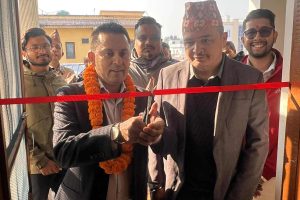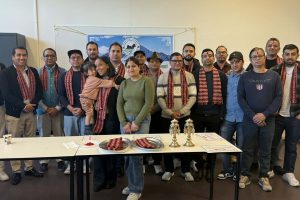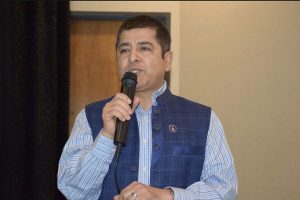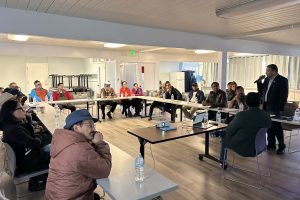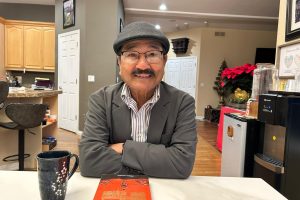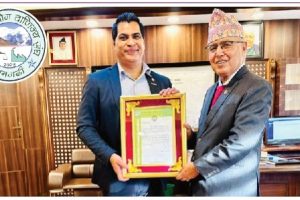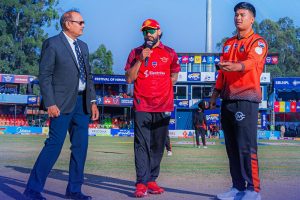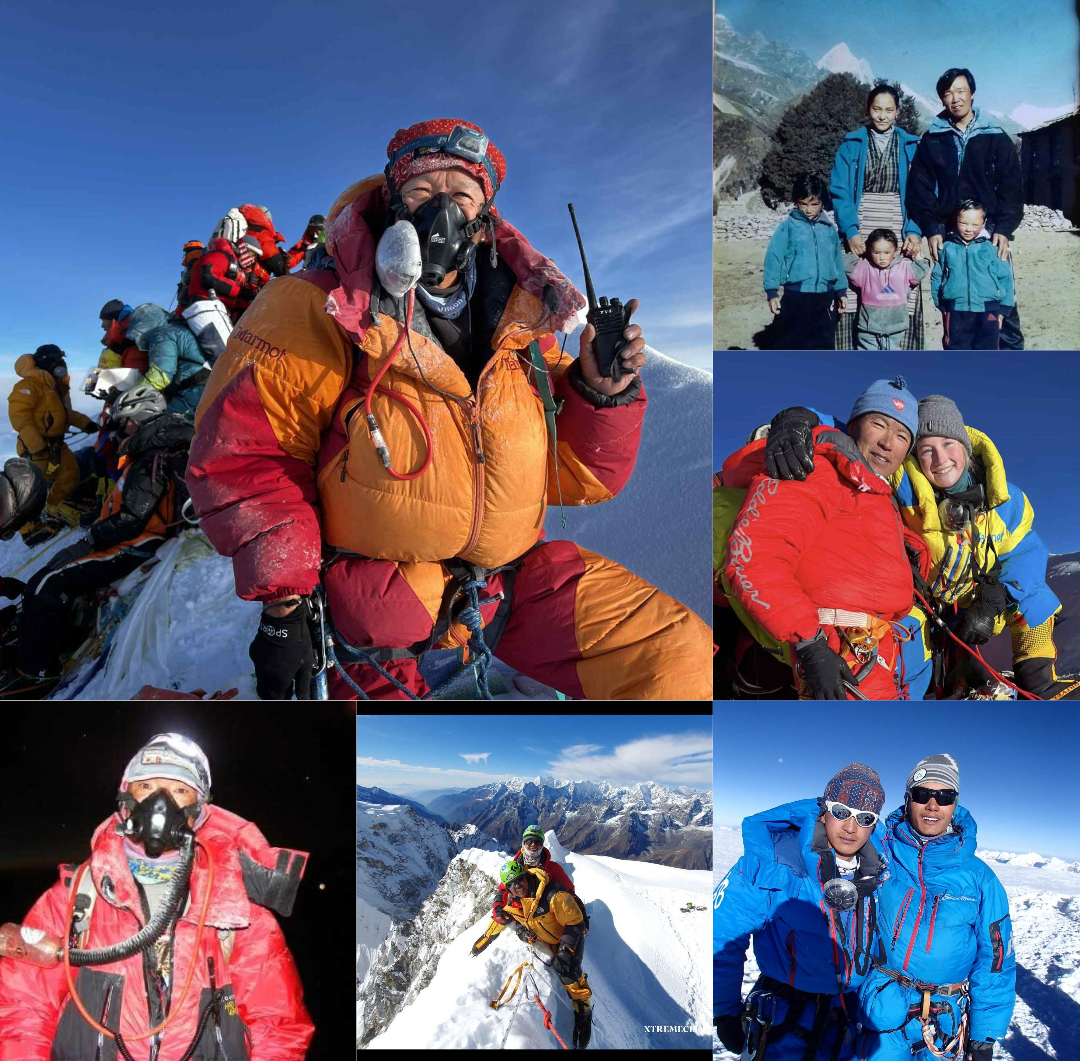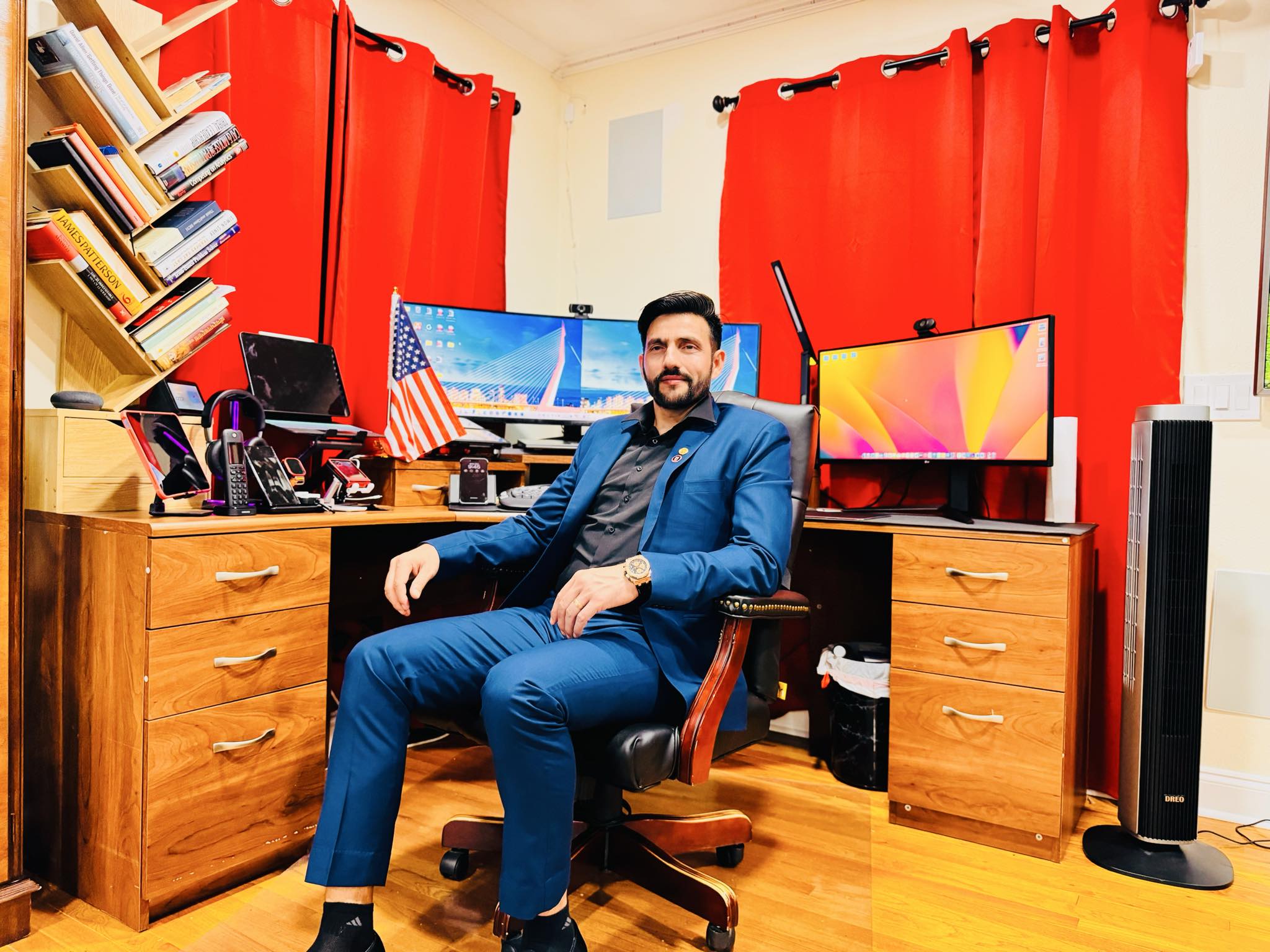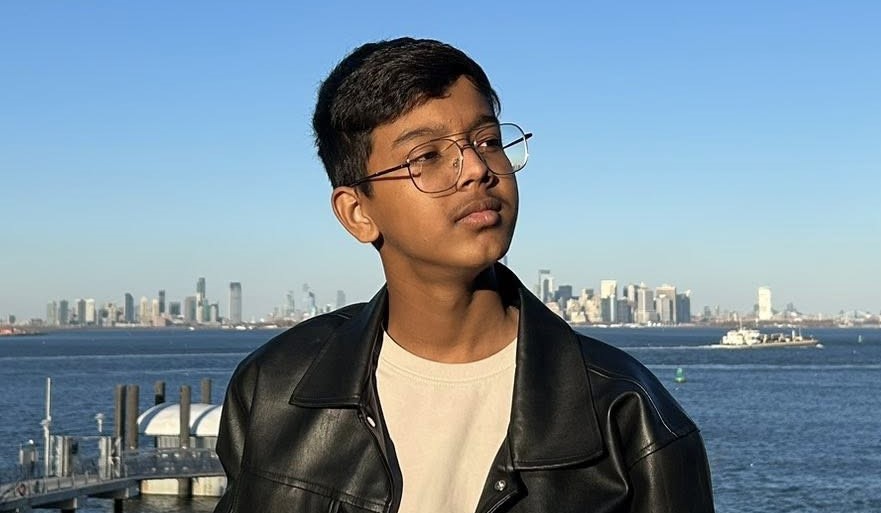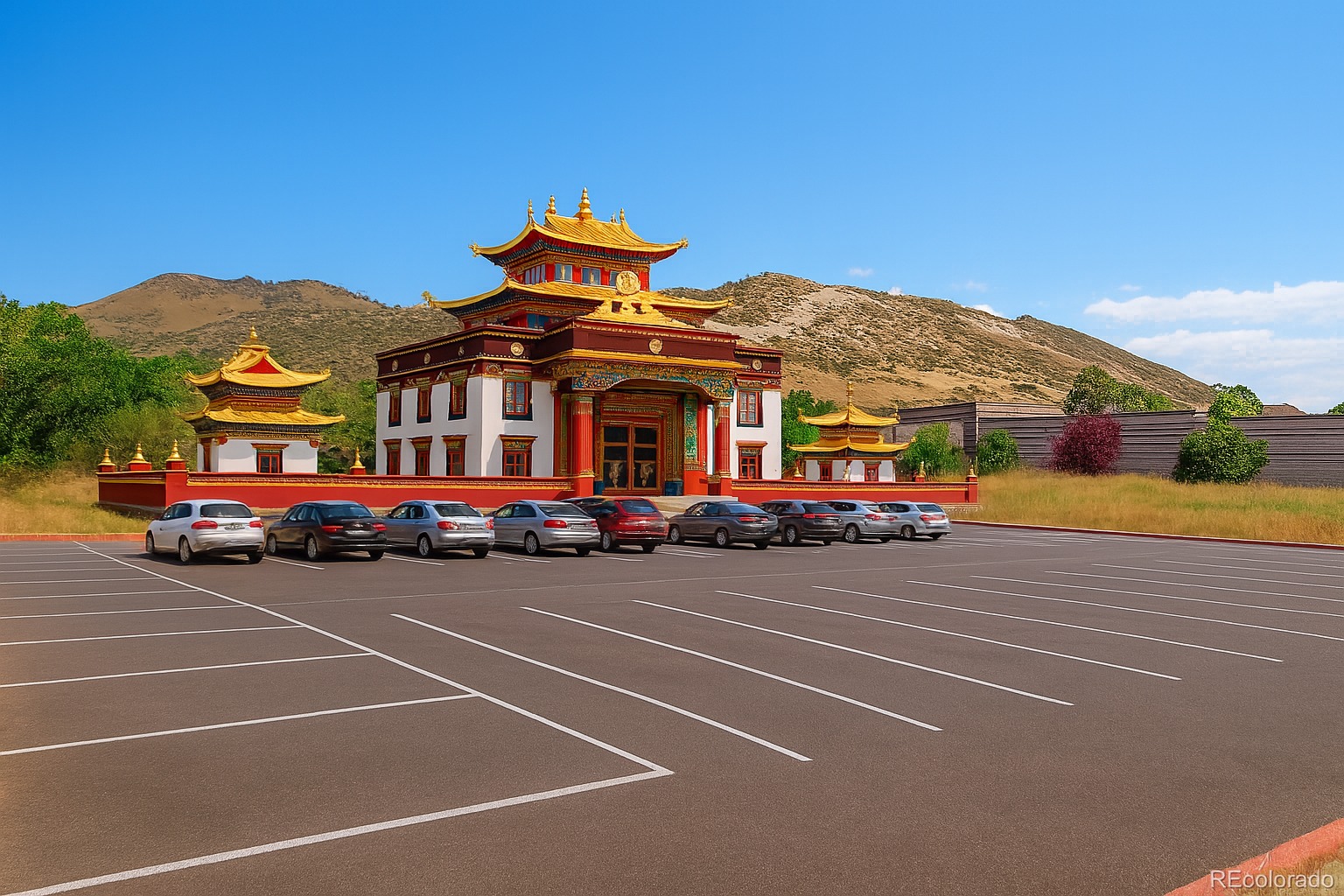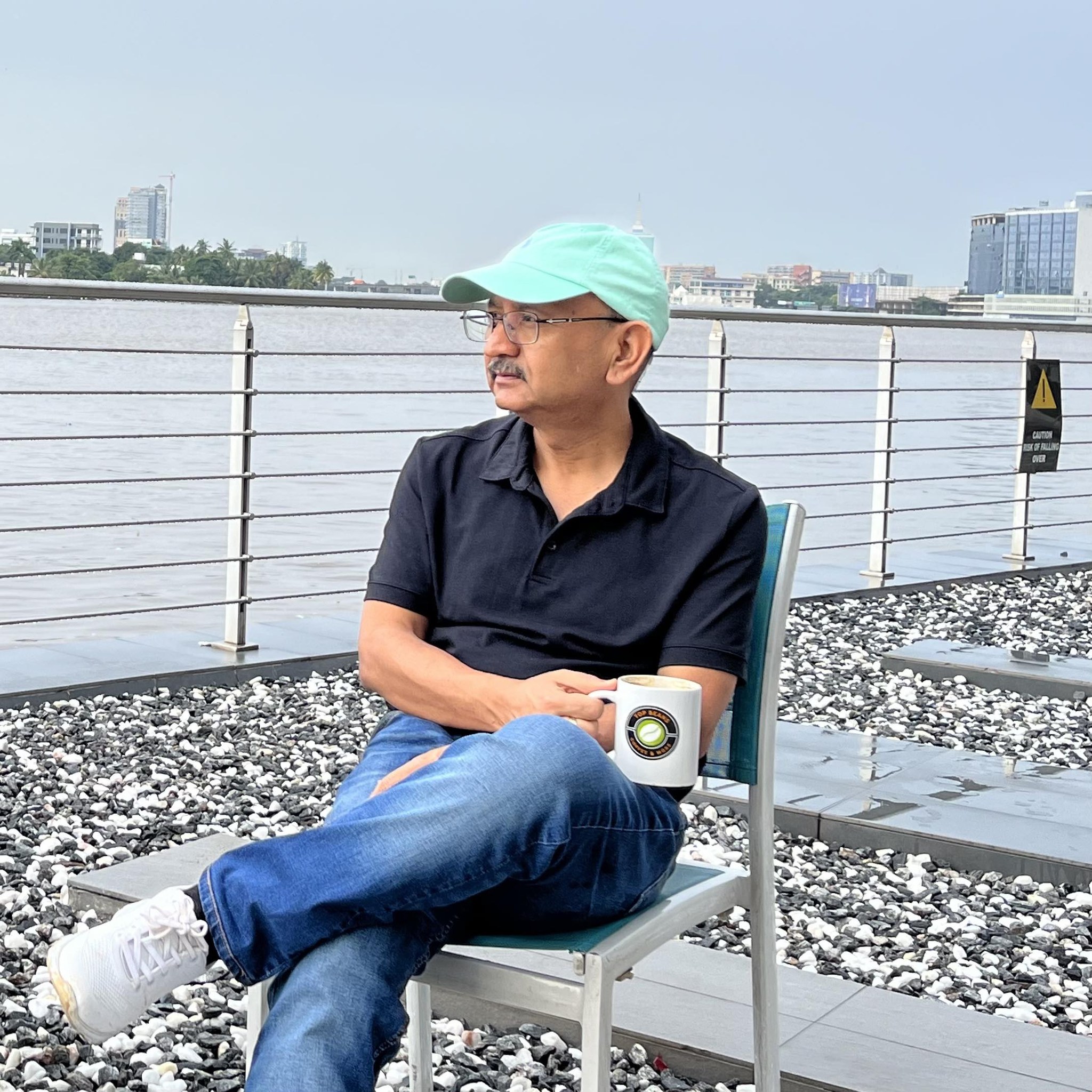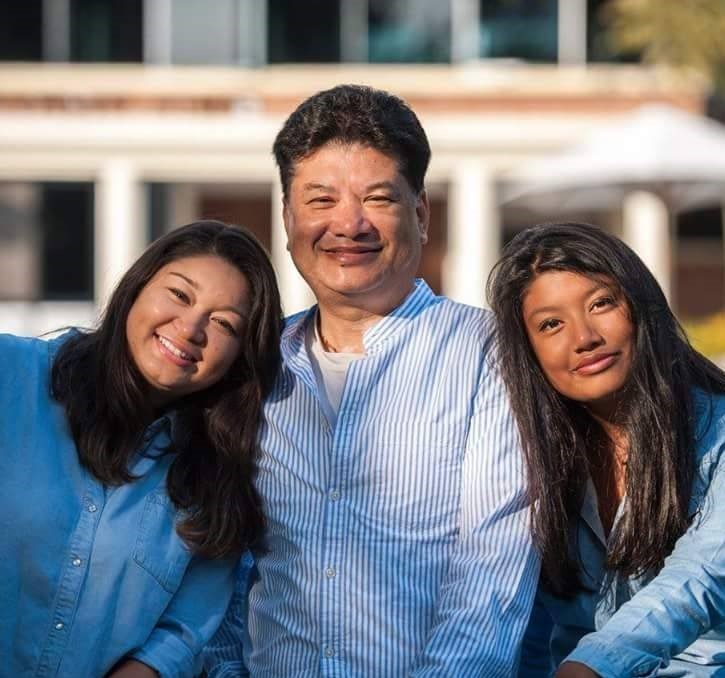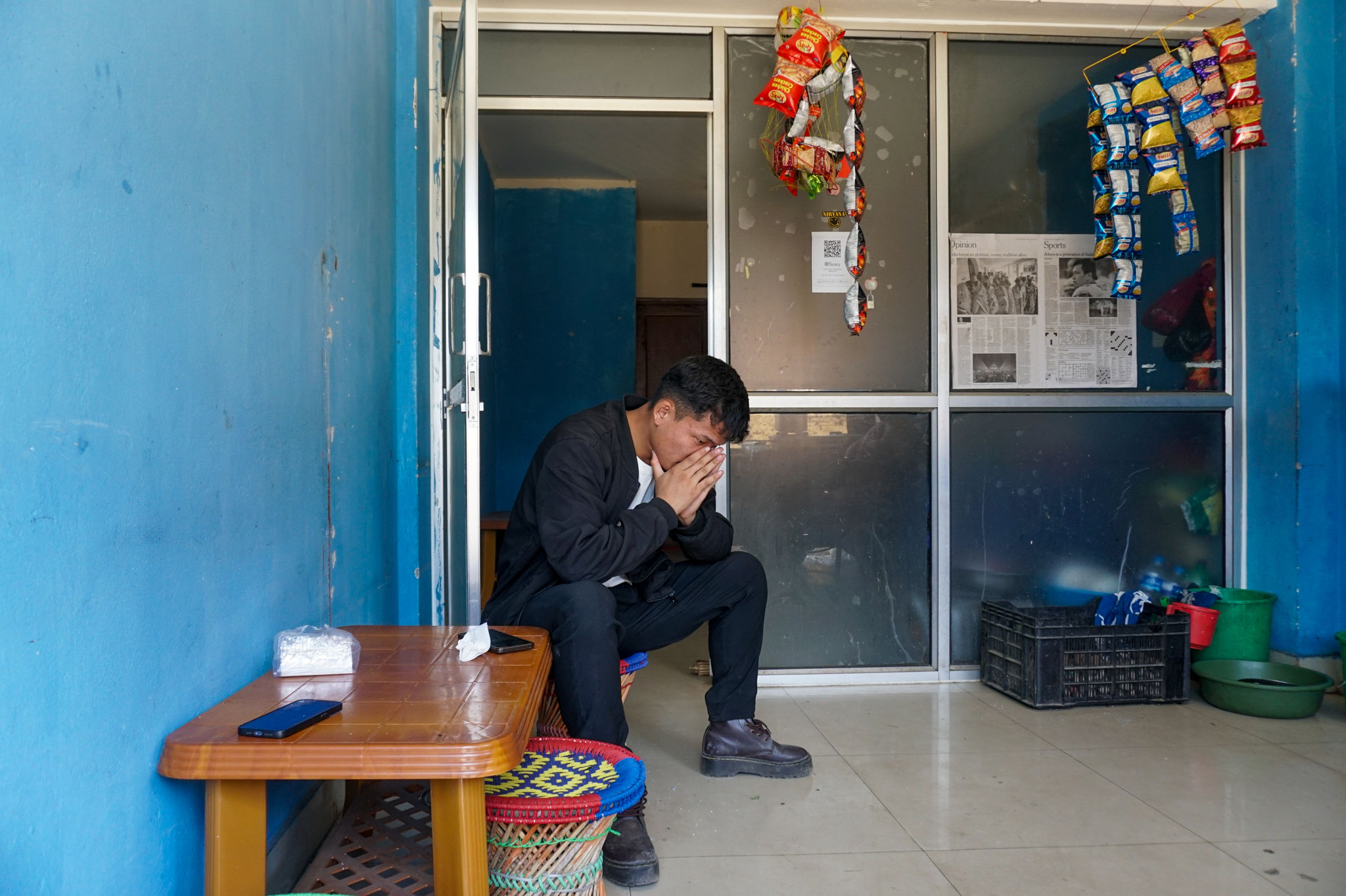From Everest to Colorado: Pemba’s Struggle and Dream
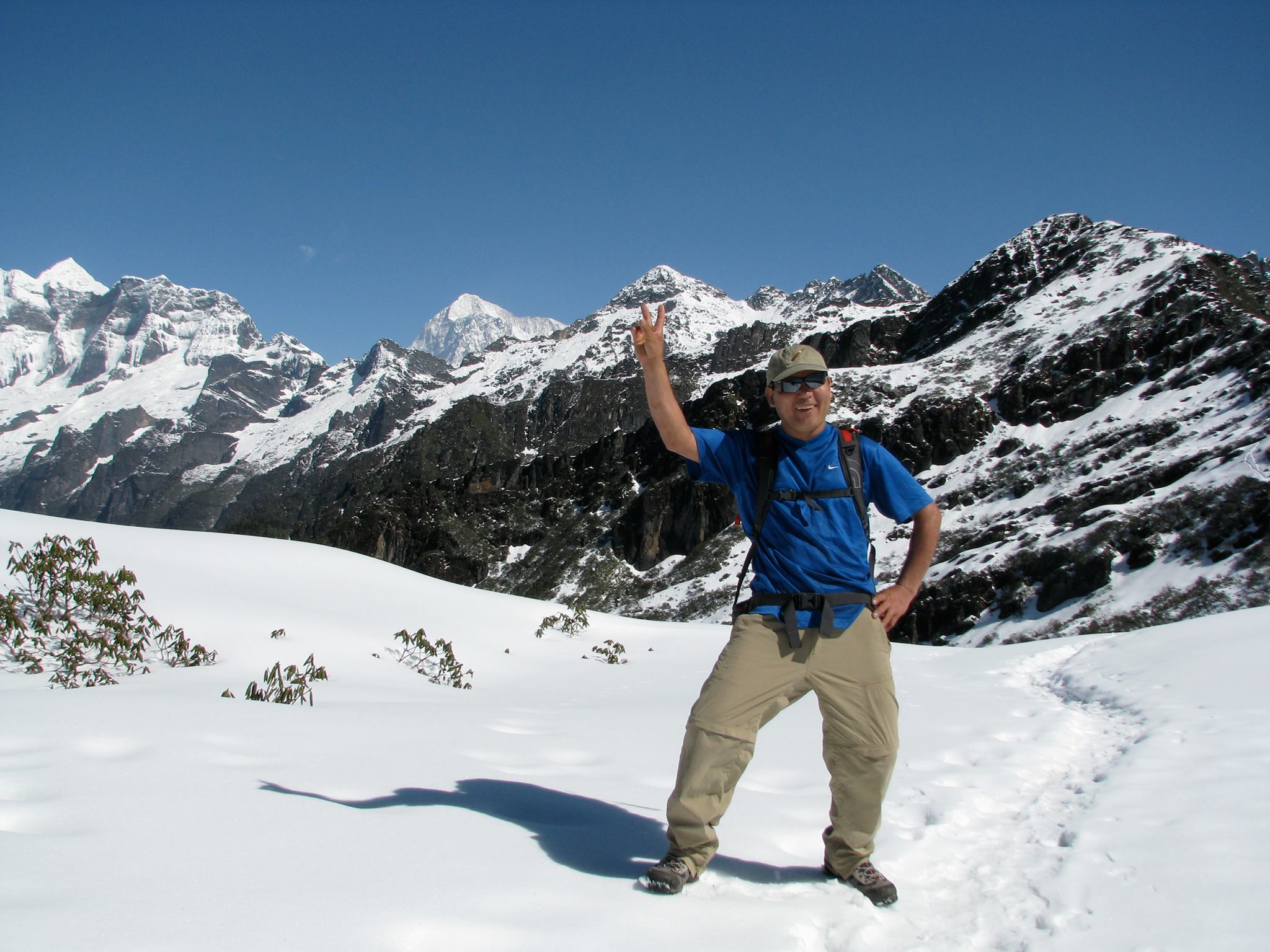
Dirgha Raj Upadhyay, Gunnison, Colorado
About 190 miles from Denver, Colorado, lies Crested Butte—tucked into the lap of the mountains. Just 28 miles before it sits Gunnison, a small town spread across a quiet valley. In winter, snow draws waves of visitors to both, filling the hills and streets with life. In Gunnison, both sides of the road are lined with billboards bearing the Sherpa brand—Sherpa Motel, Sherpa Inn, Sherpa Café. The café is draped in colorful prayer flags printed with sacred mantras. There are prayer wheels too. It feels like Lukla. It feels like I’m in the land of Buddha.
I’m talking about Gunnison—about the Sherpa empire that has taken root here. And about the man who built it: Pemba Gyalzen Sherpa.
Some people do nothing but curse the family, the environment, and the geography they were born into. They blame their fate and remain unhappy their whole lives. He was different. He didn’t blame the geography or curse his fate. Through hard work, he wrote his own destiny.
Pemba—whose childhood was spent in hunger, in hardship. This is the story of the empire he built with his own hands, fueled by hard work.
Born on February 10, 1967, Pemba was the second of four brothers. His parents, Aurken Dorje Sherpa and Angphura Sherpa, lived with limited means. In Rekha (Ghat), Ward 4 of Pasang Lhamu Rural Municipality, Solukhumbu, there were only three houses — one of them was his.
Lukla was an hour and a half from Ghat; Namche, five hours away. Just as far in another direction was Gumela village. That’s where Jansewa Primary School stood—offering classes up to Grade 5. Pemba walked three hours every day to attend school, studying there up to Grade 2.
Beyond Ghat were the steep terrains of Koshi, Chyaplung, and Kengma. Kengma had a secondary school, but Pemba never got the chance to step inside it.
Due to hardship, the eldest brother never went to school. The second, who did, left after Grade 6 to start working. The youngest was just seven when their father sent him to a monastery to become a monk.
His father carried heavy loads for tourists—traveling all the way to Namche, Lukla, and even Everest Base Camp. Watching his father, Pemba became a porter himself. At just 13 years old, he carried loads twice his own age.
He carried heavy loads all the way to Gokyo and even reached Everest Base Camp. As he grew older, he saw the majestic peaks of Annapurna and Dhaulagiri.
Once, after carrying a heavy load from Lukla to Everest Base Camp, Pemba got stuck overnight in Tengboche. When he asked for shelter, the old landlady turned him away because he didn’t have five rupees. So, he spent the entire night shivering by the river. “How could I sleep when it was so cold?” he recalls. “The cold almost took my life.”
He was over 15 years old when he left Lukla, his destination: Kathmandu. After walking seven days, he reached Jiri. Along the way, he carried an engineer’s bag. Whenever he earned some wages, he managed to afford a meal—and sometimes a Coke. When the engineer’s team left Jiri by vehicle, Pemba stayed behind.
For the first time in his life, he saw a truck. He didn’t have bus fare to Kathmandu, but he had a bag — so he sold it. He stayed in Jiri for two days, carrying rice, flour, and sugar on a truck. With the money he earned, he finally paid for a bus ticket and reached Kathmandu. The only place he’d heard about in the city was Jai Nepal Hall, where Sherpas gathered. After getting off the bus, he asked around for its location. By 10:30 at night, he arrived there. Next to the hall was Furpa Restaurant. He met people from his village—people he hadn’t seen in a long time. A wave of relief washed over him.
From there, someone took him to Nima Gyalzen’s place in Kamal Pokhari. Everyone was already asleep. Who would ask a newcomer if he was hungry? So, he went to bed on an empty stomach.
The Sherpas carrying loads for tourists were all asleep there. In the morning, the Trishuli bus was about to leave. Pasang Lama woke everyone up, but Kunga Jangbu didn’t get up. So Pasang gave Kunga’s place to Pemba instead.
He arrived in Dhunche that evening. While everyone else got off the bus to eat, he stayed on board—he had no money. For the second night in a row, he went to sleep hungry.
On the third day after arriving in Kathmandu, he was assigned to carry a tourist’s load. He asked for an advance, and on the morning of the third day, he finally ate a meal.
He carried loads for tourists to Syafru and Langtang. After eight days, when he returned to Kathmandu, he had 250 rupees—the most money he’d ever held. After a long time, he finally ate enough to feel full. From then on, work was steady, carrying loads in Langtang and around the Annapurna Circuit. He no longer had to wander looking for jobs.
He traveled from Pokhara, passing Sarangkot to reach Naudanda. He was the porter for two Canadian women, guided by Pasang. On their way back from Ghorepani, a heavy hailstorm hit near Ghandruk. He carried a basket weighing nearly 30 kilograms on his back. The hail was so fierce, it nearly burst his ears. He still remembers that experience vividly.
He traveled again with Pasang to Langtang and Annapurna. On the 22-day Annapurna Circuit trek, a British tourist gave him a 50-pound tip. By then, he had become a favorite among tourists.
With money in his pocket and information in his mind, what else did he need? In three months, he explored Kathmandu and trekking routes, getting to know people and places. When he left his village, he couldn’t understand English. But talking to tourists helped him learn the language and the trails. After that, his popularity grew. Looking back, he says, “I felt like a hero.”
fter four months, he returned to his village with 1,700 rupees in hand. He stayed for a few days, then headed back to Kathmandu. His brother-in-law, Pemba Sherpa, ran a trekking company in the United States. With his support, Pemba went to the embassy for an interview, got his visa, and traveled to America.
In 1996, he traveled to the United States on a three-month visa. He ended up staying a full year before returning to Nepal. Back home, work was no longer hard to find. He joined Bikram Pandey’s Himalayan Expedition, based on Kantipath. He didn’t have to live in Kathmandu anymore—he could stay in his village. Tourists came from Kathmandu to Lukla, and he guided them along the Himalayan trails.
He became a permanent guide, earning a monthly salary of 2,500 rupees. He also received additional allowances based on his work. As time went on, his salary, benefits, and privileges steadily increased.
During a trek to Mera Peak, he met a doctor from New York. Pemba expressed his wish to go to America. The doctor sent him a sponsorship letter, promising to cover the airfare and all living expenses for Pemba and his wife, Jangmu Lhamu.
Due to the Nepalese civil war, the tourism business was declining. In 2004, he traveled to America for the second time. Though he had no formal education certificates, he had built his career in tourism through experience and connections. It was this profession that supported his livelihood.
He and his wife settled in California. They had left their children in a hostel back home. Their eldest daughter, Kandu Sherpa, was 13; their youngest daughter, Nima Lhamu, was 12; and their youngest son, Angchiring Sherpa, was 11.
He worked for a while as a kitchen helper at Amber Restaurant but didn’t enjoy it. So, he quit. Later, he went to the mountains of Lake Tahoe, California, and started cutting firewood.
From there, he went to Kansas City and worked for about a month. Then he left that job and moved on to Denver, Colorado. There, he found work on an American farm—mowing grass and doing various chores. His wife earned $1,600, and he earned $2,200.
In 2007, he quit that job and moved to Crested Butte. He spent his days painting and worked evenings as a waiter at Timberland Restaurant. He earned $10.50 an hour.
He thought to himself, “How long will I keep working for others? It’s time to take control.” So, he quit his job and started looking around. He saw a house with a ‘For Rent’ sign and called the number listed. When the landlord asked the purpose, he replied, “For a restaurant.”
A few days later, he made an agreement with the landlord. He rented the house for $2,400 a month and started the restaurant. After a year, the house was auctioned off—the bank took it. The landlord told him, “You can keep it.”
The house was worth six hundred thousand dollars. He applied for a bank loan, but his credit wasn’t enough. His income couldn’t cover it. The house was bought by someone else.
The owner changed. A millionaire named Marko Alter, who owned a football company in Los Angeles, bought the house. Pemba ran the restaurant there for three years.
He came to Gunnison to explore business opportunities. Someone told him a restaurant building on Highway 50 was up for sale. He went to see it—and liked it. He had some money saved and took a loan for the rest. He bought the building for $450,000. In March 2013, he opened Sherpa Café in Gunnison.
His wife began running the restaurant in Crested Butte, while he stayed in Gunnison. He opened the restaurant there with three staff members. He was the cook himself. After closing at night, the staff would go home—but he would stay up making momos. Some mornings, the staff would return to find him still making them. Seeing him work around the clock, they gave him a nickname: “Mr. 24 Hours.”
His humble nature, tireless work ethic, delicious food, and unique flavors made Sherpa Café shine. Income doubled. Like Krishna says in the Gita—he focused on his work, not the reward. Yet the rewards kept coming.
In 2016, he bought a 16-room Sherpa Motel, right in front of Sherpa Café, for $450,000. In 2018, he purchased Sherpa Inn for $700,000. In 2020, he bought Western Motel for $1.5 million. That same year, he also bought a house in Denver, Colorado, for $500,000.
In 2022, he expanded his business from Gunnison to Salida. Just an hour’s drive from Gunnison, he bought a shop in Salida for $700,000 and opened another Sherpa Café there.
In 2022, he bought a house for $500,000. He purchased a second home in Gunnison for $650,000. In 2024, he bought a third house on East Georgia Street in Gunnison for $700,000. His family moved into the one on North Colorado Street. One house was given to staff, and the third was rented out.
The house he bought for $600,000 in Crested Butte is now worth $3 million. That’s where he opened another Sherpa Café—now run by his son.
He has no competition with anyone. He is humble, grounded, without greed or pride. How much has he earned? He never sat down to count. How much has he built? He’s never kept track.
Three restaurants. Three motels. Four houses. Four trucks. And jobs for 25 people. Still, he never hesitates to feed someone in need.
His goal was simple: to earn with dignity and give back to society. He doesn’t want anyone to go through what he once did. He dreams of a world where no one sleeps hungry, no one is without shelter, and no one dies without care.
Some time ago, he donated one lakh rupees to help a kidney patient with treatment. He supported the school he once studied in—offering financial help and donating computers. Whenever he visits Nepal with tourists, he shares whatever he’s earned before returning. His hands are open—always ready to give.
“Who has taken it with them after leaving this world?” he asks. The core of his life is simple: to have enough to eat and enough to give.
He didn’t focus on the load he carried—only on his destination. He found joy in every task and never hesitated to work hard. When I met him at Sherpa Café in Gunnison, he was chatting with Americans, paint stains still fresh on his pants. His voice carried a Sherpa accent, and it felt like he had just come back from painting.
He doesn’t tie his clothes to his pride. If the pride gets stained, what’s the point of cleaning the clothes? Clothes are just something to wear. Who cares what others say? That doesn’t matter to him. He believes true honor comes from hard work and ability—and that kind of respect lasts forever.
He never learned to speak or write Nepali well, but he speaks English fluently. Though he didn’t attend school, he taught himself English. He says he can confidently stand and give a speech in English.
He never got to go to school, but he made sure his children received the education they wanted. His eldest daughter is completing her medical studies in two years. His younger daughter finished nursing school. His youngest son, who studied science, is now helping with the family business. With his grown children taking on business responsibilities, he hopes to visit Nepal again. He shared his future plan—to take his grandchildren, born here, to explore Nepal as well.
Hunger becomes deadly when it turns into habit. But the one who tightens their belt and dares to fight hunger—dares to fight fate—doesn’t stay hungry forever. He never let hunger become his way of life. He was hungry, but he fought through it. And through that fight, he found success.
Every moment matters—make the most of it. Immerse yourself so deeply in your work that you have no time to worry about anything else. You don’t need to chase success; if you stay true to your path, success will follow you. That’s the mantra he lives by—and the one he shares with others.


.jpeg)
.jpeg)
.jpeg)
.jpeg)
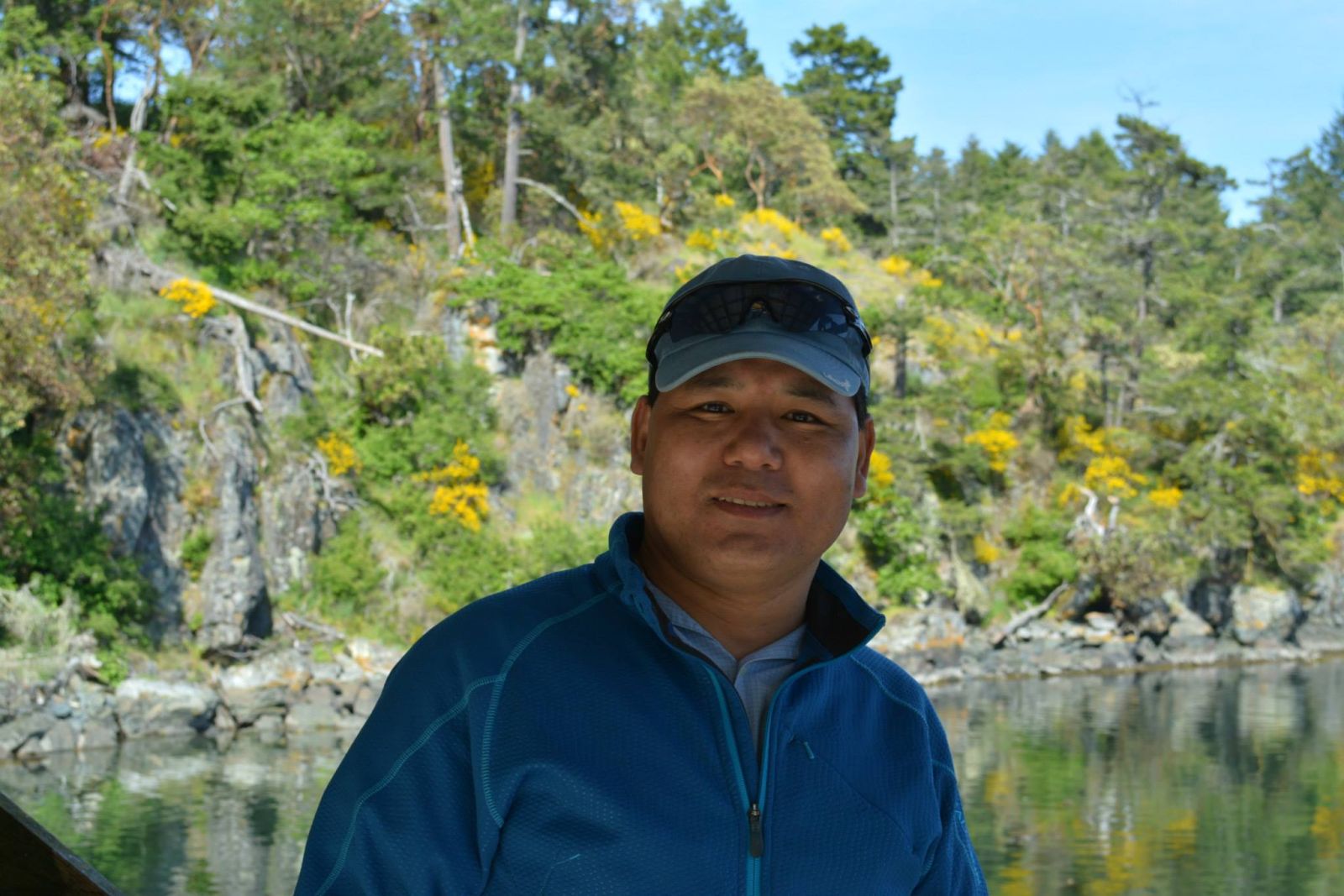
.jpeg)
.jpeg)
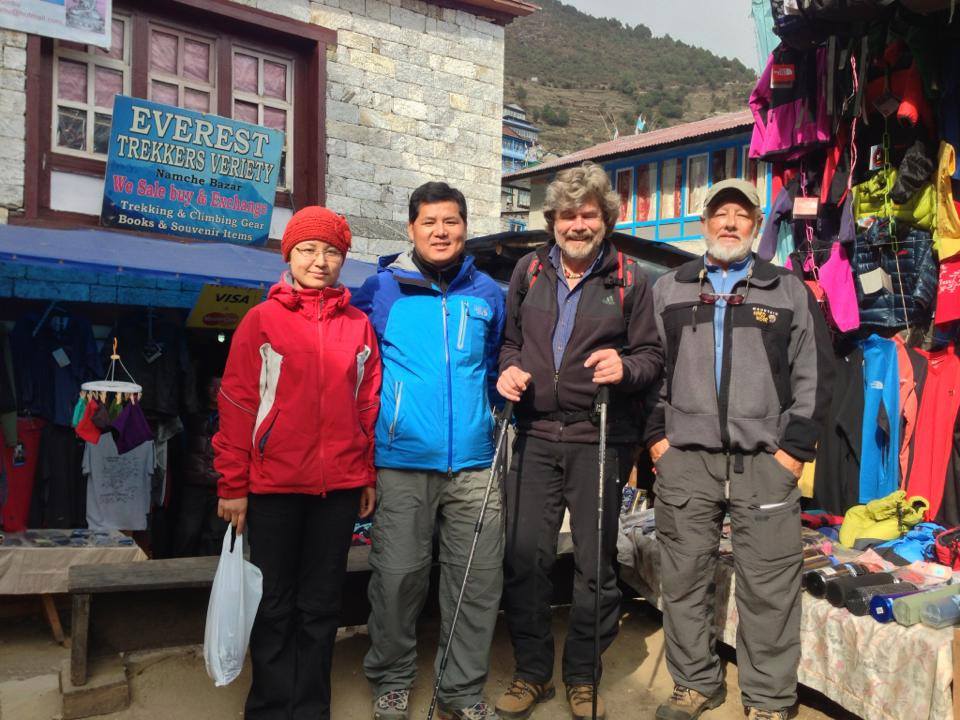
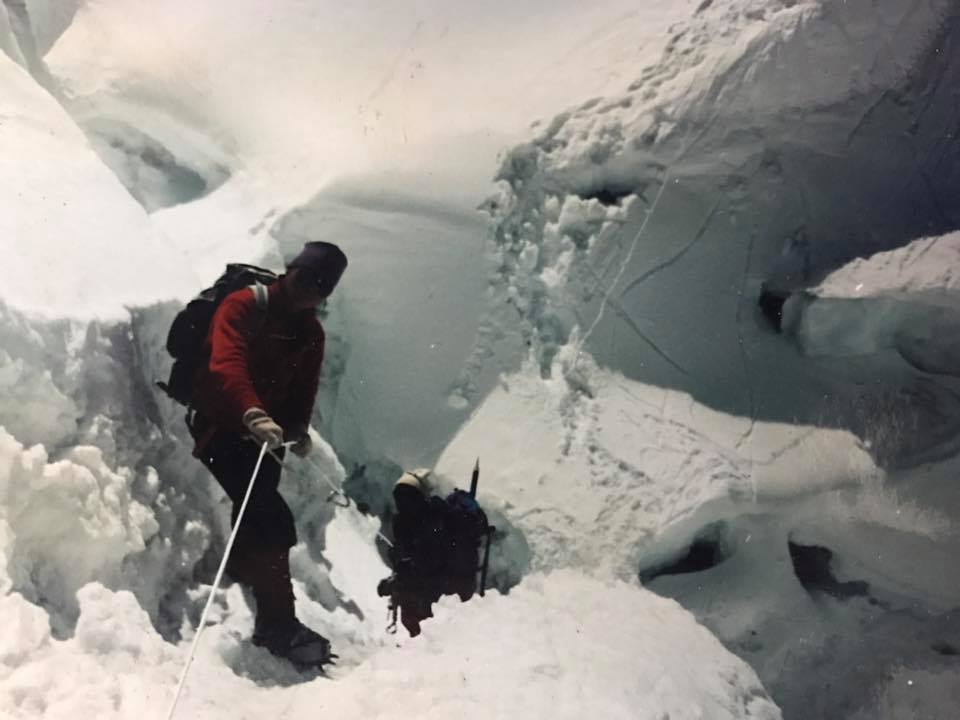
.jpg)
